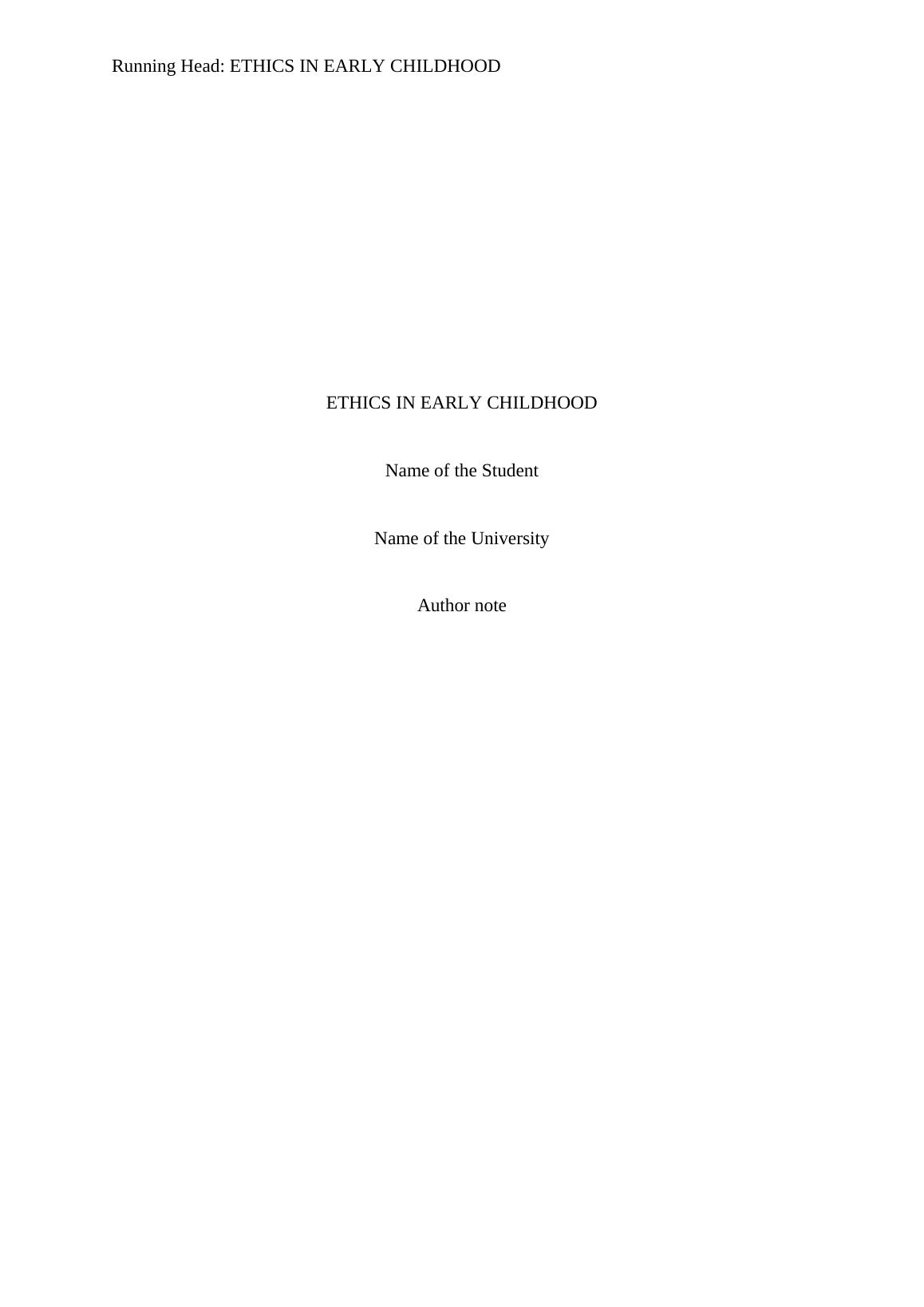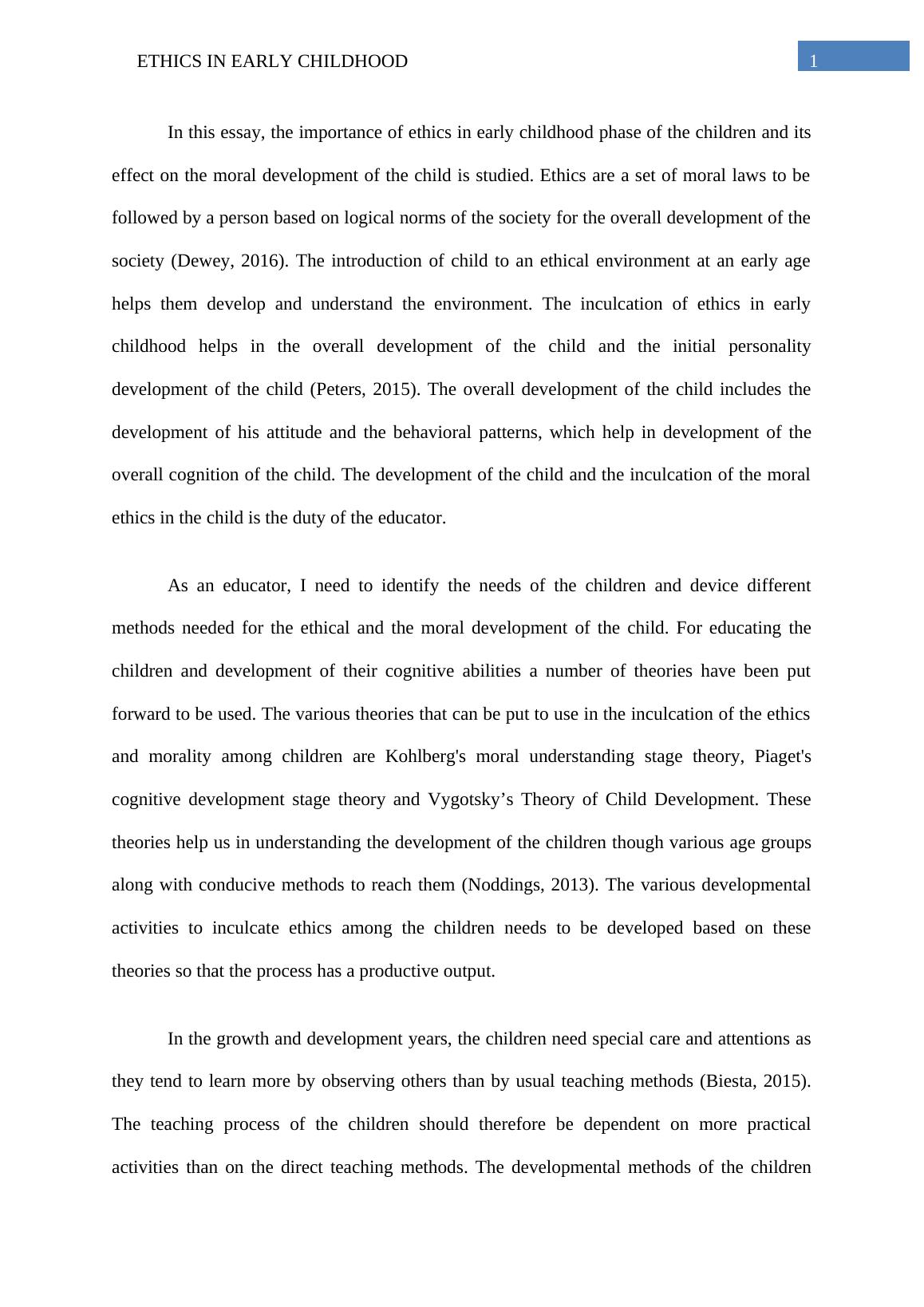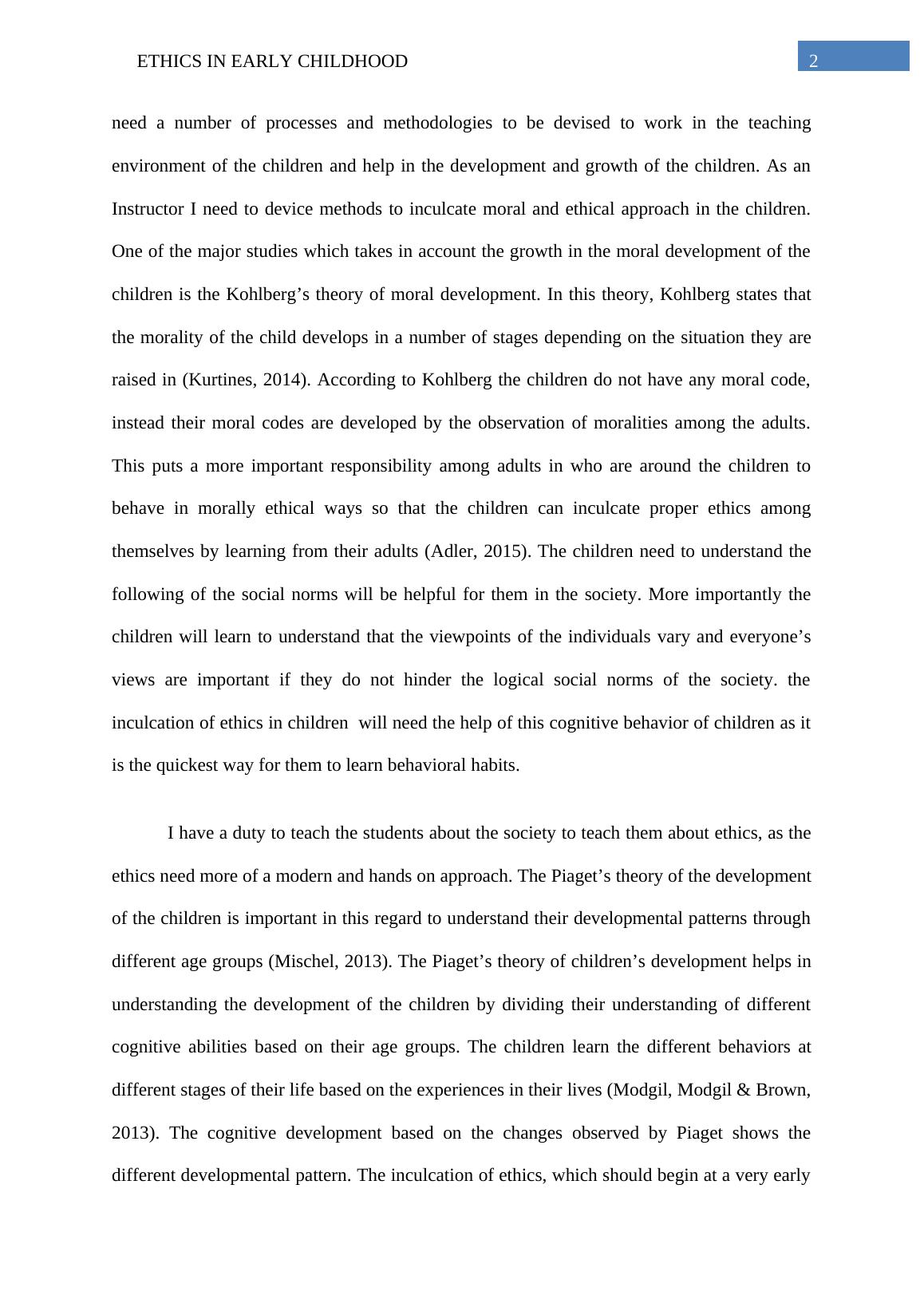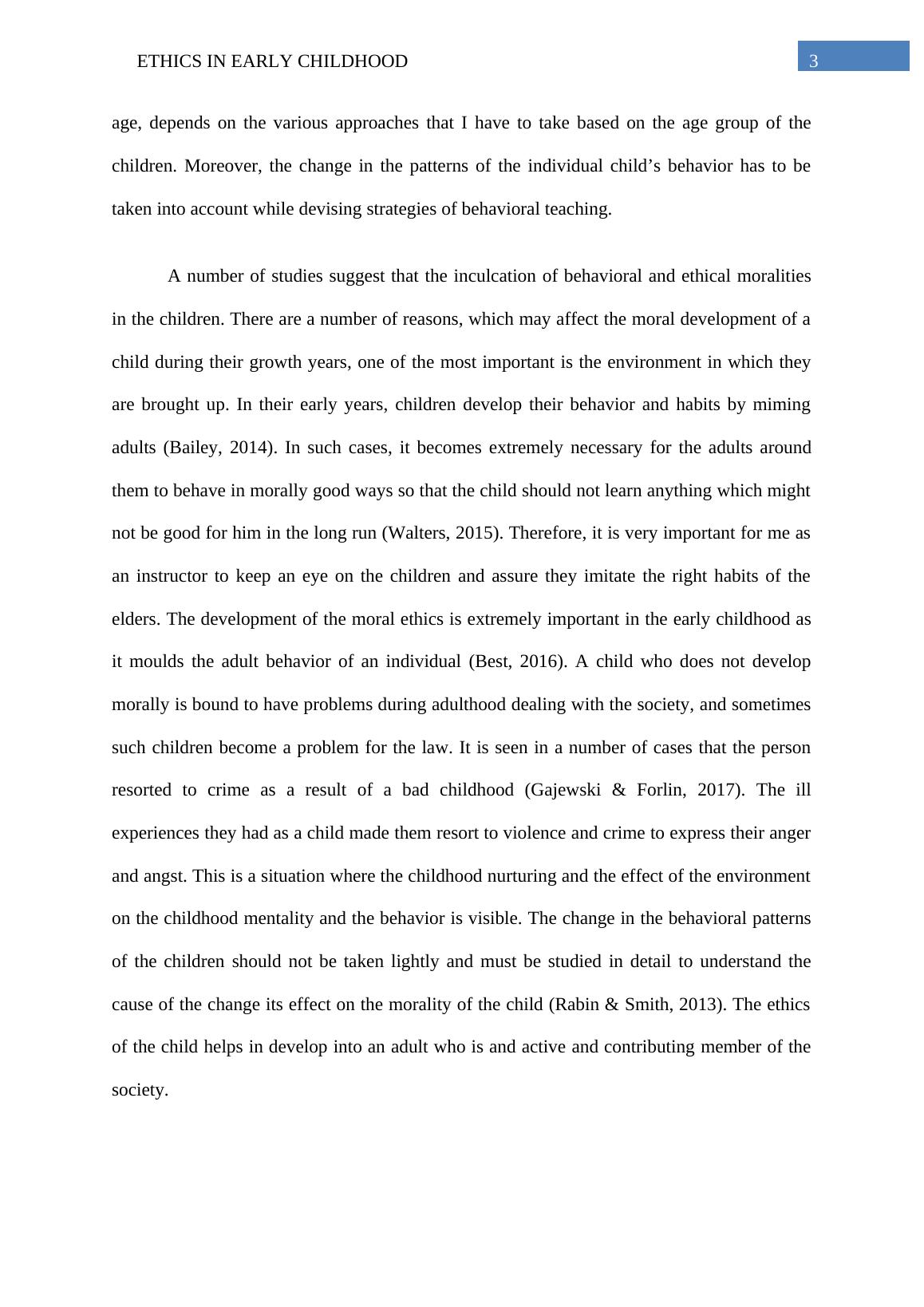ETHICS IN EARLY CHILDHOOD 1 Running Head: Ethics in Early Childhood Phase of the Children
13 Pages3900 Words494 Views
Added on 2020-04-13
About This Document
The various theories that can be put to use in the inculcation of the ethics and morality among children are Kohlberg's moral understanding stage theory, Piaget's cognitive development stage theory and Vygotsky’s Theory of Child Development. The various developmental activities to inculcate ethics among the children needs to be developed based on these theories so that the process has a productive output.
ETHICS IN EARLY CHILDHOOD 1 Running Head: Ethics in Early Childhood Phase of the Children
Added on 2020-04-13
ShareRelated Documents
End of preview
Want to access all the pages? Upload your documents or become a member.
Cognitive and Moral Development in Early Childhood
|5
|1322
|77
GROWTH AND DEVELOPMENT OF EARLY CHILDHOOD.
|10
|2843
|1
Philosphies of Early Childhood Education
|6
|799
|15
Theories of Development and Learning - Early Childhood Stage:
|14
|3670
|64
Code of Ethics: Early Childhood Educators
|6
|1156
|492
Early Childhood Learning
|6
|1155
|94




